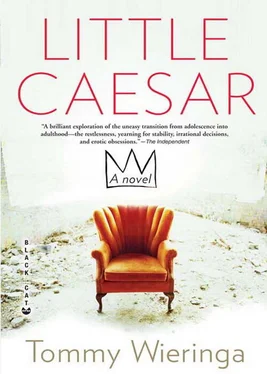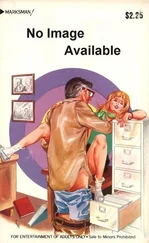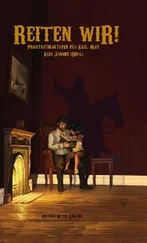I was too excited to pay attention. I asked Warren for a torch; he handed me a Maglite heavy enough to brain a cow. The light blazed a trail for me through the bushes. I moved towards the edge and stopped about ten meters from it. The waves were slamming against the cliff with the dull, punishing blows of a heavyweight. A haunted house, lonesome and forlorn. It made you feel the kind of pity you might feel for a mistreated pony. My eyes fixed on the darkened house, I ducked down in the bushes to get out of the wind and bid welcome to my memories. It was cold, so I crouched down further. Hissing fountains came rocketing up from the depths. Scuds of rain were whipping down on me. It must have been past midnight, I had visions of our house as a ship, of the listing and the floating away, of how it would forget us on its journey.
Then a voice, my name. LUD‐WIG! I stood up. Stinging needles in my flesh as the blood started flowing again. A beam of light close by, Warren, his spectacles dotted with rain. He screamed, ‘ WHAT ARE YOU DOING ?’
‘ I WANT TO WATCH! ’
He stood there for a moment, looking, shouted CAREFUL ! and moved back towards the house, shoulders hunched up around his ears. Waves broke over the edge, white shapes scaled the cliff like enemy soldiers. Foam flew through the cone of light from the streetlamp. I couldn’t take my eyes off the water’s rise and fall, the towers collapsing one by one. Even if the house survived this, its eastern wall would be badly damaged, the water must be in the front room already. Sometimes I thought I detected motion, the shiver that came before the collapse into the depths — an illusion. The house was still standing, perhaps it would be spared! A twinge of absurd hope. I ran and screamed at the wind, the sky — I was the loneliest, oh joy, the loneliest of all! I danced like a demon in the beating rain. A noise made me stop, I pointed the torch at the house. The groaning of a nocturnal animal, an inexpressible pain. With amazing lightness the house spun low on its axis and slid moaning, screeching, into the chasm. The music of my nightmares. A sound like an underground explosion — then it was over. I stared agape at the void where the house had been standing just a moment earlier. I had never experienced such lucidity. A chosen one. At this very moment, even as I had the thought, things were going as they had always gone on, first a house, then no house — true erosion wasn’t about losing a house but about time; I had seen time in action, the being, the not-being, the glorious indifference. I fell to my knees and clawed at the earth, let it run through my fingers like a farmer. Cold rains washed over me, on the back of a whale I traveled to the ends of the earth, nothing remained hidden to my eyes.
That was how I’d always imagined it, the slow-motion image of a house sinking into the depths, like the opening up of the earth’s crust, but that was not how it was. It tilted and disappeared into the turbulence below. Strangely enough, the version I actually saw never supplanted the imaginary version. Even now they exist side by side in my head, they are both equally real. Sometimes I have to tell myself oh no, that’s not how it went .
I stayed with Warren and Catherine for two weeks, and it drove me crazy. I was brimming over with destructive energy. There wasn’t enough room for me under one roof with two old people. I moved in with Cameron Fitzpatrick, a boy from my team. He had a flat of his own above Webster’s greengrocer’s. It was a little place. During the daytime I rolled up my sleeping bag and stowed the mattress in the cupboard. I remember cigarette butts everywhere and the exhausted furnishings from the second-hand shop. Cameron’s father had disappeared from sight, his mother couldn’t handle him anymore. He had been to a few boarding schools. Rugby sort of helped to keep him in line. Now he worked in the stockroom at Fraser’s. He was lost. A boy who would only make it with a lot of good luck, which he didn’t have. Cameron had once smoked a joint on the steeple of St. George’s. God knows how he got up there. He talked about it to anyone who would listen. He lacked the class to keep quiet about things like that.
I tried to let things run their normal course, but things got in the way. The article appeared in the Sun , with that disgusting picture of my mother and the one of my team. In which I played piano in that respectable hotel on Alburgh’s quaint market square . You’d be surprised how many well-heeled people read that rag. I became that boy with some kind of problem . The moles had dug deeply, their burrowing had even unearthed Bodo Schultz. They wrote horrible things about him, horrible in the sense that they might have been true. About his destructive art, the riots it provoked. I bore the dubious patina of fame, my origins were a myth. I tried to be unyielding and distant. I thought about my mother’s words, the sentence branded on my skin: In fact, you don’t really need anyone anymore . The evil spell that pushed my life in a certain direction. The future looms up before me like the mouth of a smooth metal tube, nothing to grab hold of: I slide, I fall, nothing sticks to me, just as I stick to nothing. My fingers glide across the keys, a Chopin nocturne in G-minor, opus 15-3, I nod politely at the quiet applause. I am a good little monkey.
My mother took a room at the Belfort in London. I called her once a week. I couldn’t quite pin down what she was doing there. When we spoke she put on her long-distance voice, the voice of people who aren’t alone in the room. A claim was being prepared, she said, she had a lot of confidence in the new lawyers. And she had to go to Holland for the reading of a will, but she didn’t say whose. She was behind her veil and she wasn’t coming out. I had the feeling that the house was the rind that had held us together, and that now we had fallen apart into two clean halves. I was worried. I couldn’t imagine her alone in the world, doing everyday things, I had experienced so little of her dealings with anyone other than me.
Twice a week I ate at the house of Selwyn’s parents, Paula and Ashley Loyd. Selwyn had indeed gone off to study medicine at Cambridge, he came home with stories about nightly scrambles across the slate roofs of the city. About vomiting in the dean’s front garden. He played rugby for the university’s first team, and punted on the Cam with stunning girls. His life had taken on an infectious dynamism.
It was with a feeling of relief that I left Cameron’s perspective-free cubicle on those evenings to dine with Paula and Ashley. They didn’t make me feel like they were doing me a favor, they enjoyed having company now that their children had all left home. They asked no prying questions and would never blame you for something you couldn’t do anything about. When we watched TV I could see the old barf spot on the carpet.
Paula had something carelessly aristocratic about her. She wouldn’t have been caught dead wearing a crazy hat at Ascot, but carrying a butterfly net in the jungles of Belize was perhaps a different matter. Ashley was a slyly humorous, good-natured man, a man with see-through, innocent secrets. A general practitioner, he was preparing for retirement by fixing up old furniture in the garage. Hunting was his real passion. He always asked whether I wanted to take a nice piece of venison, a haunch home with me. A leg of hare, perhaps? Sometimes Cameron and I, when we were stoned at night and had the munchies, would fry up the contents of the package I took with me and attack it with blunt cutlery.
I took the train to London. She picked me up at Liverpool Street Station. She laughed a lot, people looked at her. We walked down the street side by side, sometimes she took my arm. We were going to have a nice day together, she had decided that already. She talked a mile a minute about her plans, the progress in the court case. There was no way you could tell we were tragic, not by looking at us. We ate pastries at a tearoom and looked at ships on the river of lead. She wore elegant little white shoes, when we left the tearoom she tossed her mantilla around her shoulders. She held the key to the city. It confused me; after burying herself alive all those years on the coast she now moved along as though the streets were supposed to bend to her will.
Читать дальше












